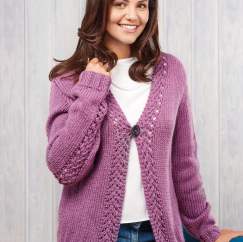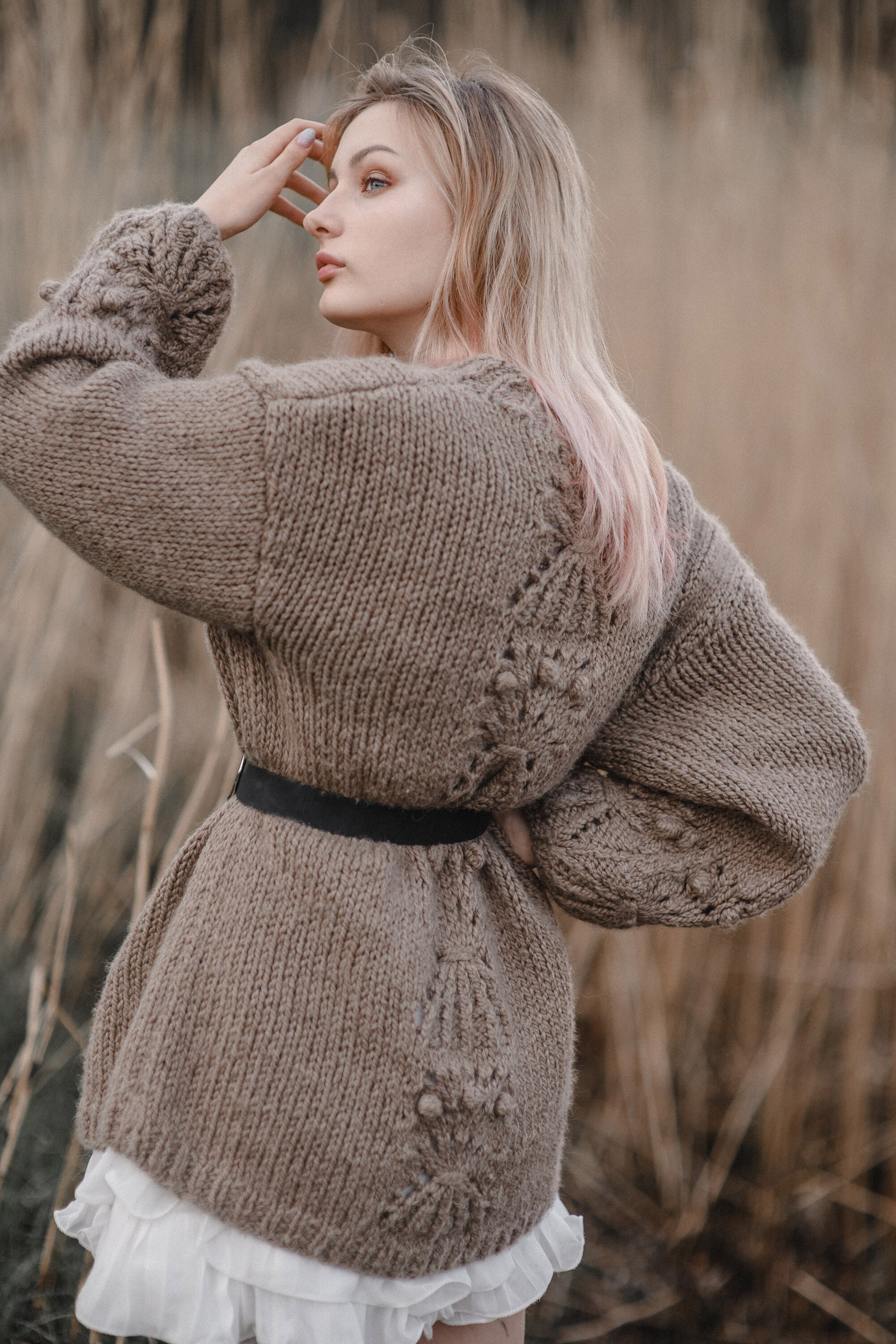chunky cardigan knitting patterns for ladies
chunky cardigan knitting patterns for ladies
chunky cardigan knitting patterns for ladies Sewing is a craft that the states a needle and meander to tie something or connect something . The history of stitchery dates back chiliads of age BC . Sewing has its own basic stitchery proficiency, different from weaving and fancywork . In general, all still use the basic techniques of traditional sewing, until the sewing car came out in 1790, invented by Thomas Saint.
Download
Basic Sewing Techniques
Nowadays , sartors in the main use sewing machines more oft . The political machine is divided up into two, namely traditional and electric . Even so, the basic sewing proficiencies are still being studied because buying a machine commands thomas more capital . Another rationality is that exploitation staple sewing techniques will pass on you much best solutions and diverseness than machines . Here's an explanation for the basic stitching proficiency:
1 . Skewers
The basic technique of sewing a basting stitch stitch is a technique in which the pattern moves from child to left . This stitch proficiency is utile for making stitches neater and even perfect . The baste stitch practice has 3 uses, videlicet sewing the sides of the cloth, conclusion the ends of a form, and fashioning the fabric have a wrinkle effect.
As for the basting proficiency, there are 3 types, namely:
Ordinary Skewers : This proficiency is done with unequal distances, different.
Skewer a certain distance : This proficiency u.s.s a consistent distance . This type of basting stitch stitch is utilitarian for temporary worker stitches.
Skewer Barrier : This technique americas a single blank . between each stitch . This stitch is made with double duds so that when the stitch is ruined, there is a vestige of the last stitch.
2 . Stabbing Traces / Flip
The following staple sewing proficiency is the imprint piercing technique or another name for the back knife thrust stitch . This chase stitch has the same groove as a stitching machine . How to make a trail stab stitch pattern is to do the stitches twice from the top stitch . The role of the trail shot is to make ornamental agate line ornamentations that are straight person, round, or other shapes according to the desired design . Examples of the resultant roles are the motives on the sarong in the cast of boxwoods, making stressed occupations, committal to writing, and others . Another function is to connect cloths with other materials and slide fastener connecters with textiles.
3 . Skewer Flannel
The basic proficiency of stitching flannel stitches is in general used as a method acting of sewing the edges of the garment organism overlaid . Basically, flannel stitches are used on fabrics that wealthy person an expensive selling value . The flannel stitch proficiency has 3 americas, to wit as decoration, staple stitches, and shadower fancywork with stringent spatial arrangement that can follow the motif.
How to apply a flannel stitch is to do a basting stitch stitch on a textile that has been sewed 3-4cm with a 0.75cm step backward . Insert the needle to the right hand and backrest over again 0.5 cm . Thread back over the number one run up and go forward until you're done.
4 . Skewer Feston
Feston has a role to finish the lint on the seam . An exercise is the eyelet on the arms in baby clothes . In addition, the Feston stitch pattern as well helots as a decoration . Especially if the combination of basic and ornamental thread colours has a good concord . The form of ornament that can be made with a festival pattern is a bloom-ilk form.
5 . Prick the Wrap
The bind stitch practice is useful for stitching damaged lint on crimper clinches . Another function is as a finish technique on the edge of the seam . How to sew with the basic technique of balut stitch is left to right and vice versa at a slight angle.
6 . Skewer / Stem
Especially utilitarian as a decoration on a material . The results that can be obtained from spliffs are in conformity with the results, to wit the form of the stem turn . It is possible to make other institutions with stick sticks, but in general they are made to get sticks.
How to utilise the stick sew together pattern is to sew back 1/2 cm and tie 5-6 threads to the textile . After that the needle is pulled out and acquires a shuck sew . This pattern is perennial until the coveted resultant role is obtained . If you want to get a larger size, the stitch distance is made tighter and the fabric is bigger.
7 . Chain Stitch
As the name connotes, the staple technique of sewing a chain stitch has a practice that forms a chain . This normal is useful for fashioning ornamentations on materials in the shape of chains, for example, tree ramifies and tree branches.
How to clear a chain sew is to take a step frontwards in sewing . First, stick the needle from the bottom to the top of the cloth . After that the needle volition be inserted back into the hole where the needle formed a lap due to the old puncture . Pull the needle and restate the traffic pattern until the sought after pattern is formed.8 . Cross Skewer
The cross stitch traffic pattern is used as a decoration on the stuff . How to work a thwart sew together approach pattern is to sew from the top right wing to the bottom of the inning left, after that the direction is made to the bottom right . The minute shot volition begin at the bottomland right and and then work towards the top left . Make sure that the stitches are aligned at the top and bottomland so that they form a slap-up cross run up . Repeat until you get the coveted result.
9 . Skewer Piquar
The piquar stitch is a staple sewing technique that is utilitarian for attaching furry materials . Generally used on fur coats, jackets, or suits . Another part of piquare stitch is as a ribbon on other dress.
10 . Skewer Som
The som sew together blueprint is used to sew and lock the congregations in the fabric . Fabrics that have been locked with a som stitch design cannot be opened once more easy . How to use the som technique is to stick the weave into the folded cloth . Pull the wander and so stab it back next to the stitch with a tight distance . Repeat until you let finished stitchery the turn ups.
11 . Flatback
The basic proficiency of sewing a flat stitch is from left to right hand . This practice is made by loss up and low in a straight person line and in layers covering the stallion surface of the decoration . This technique is in the main used to make ornaments in the form of foliages or blossom crowns, and dolly noses.
12 . Open Chain Stitch
Is one form of decorative stitch that changes . This sew is fundamentally a chain sew together with its own variations . This practice is generally made into ornamentation on skirts because it forms an opened mouth.
13 . Skewers
Similar to the roll stitch type . The difference is in the serve . The parallel bars function to grace the surface, patch the roll stitch proficiency is utilitarian for connecting two textiles together . Examples of gratings are the shape of the eyes, nose, mouth, and bloom crowns.
14 . Skewer Roll
The staple technique of sewing a roster stitch, as the name indicates, this normal forms a encircle when applied . This technique is secondhand to connect the cloth so that the terminals of the material do not pile up.
15 . Bullion Stab
The Bullion stitch technique is not a basic sewing proficiency . Bullion is an advance technique rarely secondhand by tailor-makes . The bullion stitch pattern creates bantam string of beads to organise tiny blooms and sir thomas more.
16 . Skewer Roumani / Rumani
The roumani proficiency is the lapp as the bullion stitch . This proficiency has an advanced flat and is not usually secondhand . The Roumani stitch figure is utilitarian for forming ornamentations with inside information, for exercise, long foliages and flushes.
17 . Satin Skewer
The satin stitch pattern is secondhand to shuffle leaf-wrought ornaments in general . In addition to leaves, satin stitch technique can as well be secondhand to word form assorted decorations as desired.
18 . Flat Skewer
The flat stitch design is secondhand as a embellishment in the stitch . In general, to fill in the empty fields in the framework that has been created.
19 . Straight Skewer
The staple proficiency of sewing a heterosexual person stitch has the same pattern as the name connotes, which is heterosexual . This proficiency is used to shape blooms and gunter wilhelm grass with straight sew togethers.
20 . Skewer Flowers
The basic proficiency of stitching bloom stitch has a very unique approach pattern . Patterns of flower stitches change wide with the resultant roles forming the framework of a flower . How to do a different blossom stitch according to the desired flower.
21 . Skewer Veston
The daar technique of sewing the vetson stitch is secondhand on tablecloths, blankets, textile edges, vesture edges, and so on . Including easy and can be done as instruction to children . The stitching instruction can be done from leftfield to right or vice versa . Start sewing by lancinate from the interior of the fabric at a position 1 cm from the end of the material, after that perpetrate it out . Put it back in the material dear the first hole out and pull it gently . After that there will be a circle of thread, put the meander in the circle and and then pull it . Repeat until ruined stitchery.
Download



Posting Komentar untuk "chunky cardigan knitting patterns for ladies"